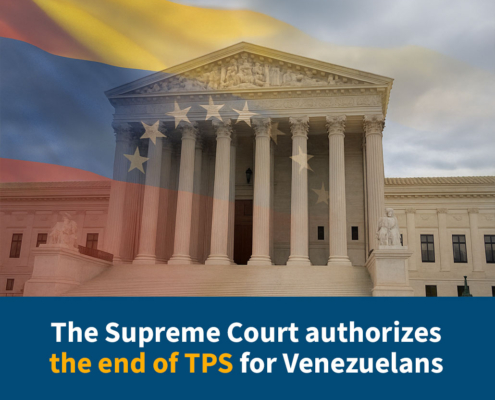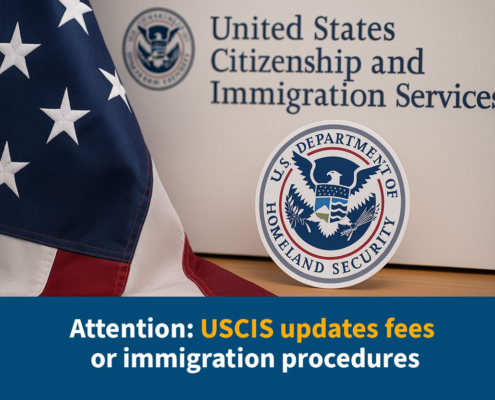
U.S. Supreme Court Authorizes End of TPS for Venezuelans in the United States
Asylum Petition, News, Work Permit
In a 6–3 ruling, the Supreme Court overturned a previous injunction that had blocked the termination of Temporary Protected Status (TPS), paving the way for the Department of Homeland Security to end the program for Venezuelan nationals.
On…

Understanding the $100 Annual Asylum Fee: Clarifications and Next Steps
Asylum Petition, News, Work Permit
The recent implementation of an annual fee for asylum applications has generated a considerable number of questions among our clients. At Immigration Pro, our duty is to provide clarity and precise strategic guidance. Below, we present…

Moved? Here’s How to Change Your Address with USCIS Without Affecting Your Immigration Case
Asylum Petition, News, Work Permit
If you have an active immigration process in the United States (such as asylum, residency, work permit, etc.), it is your legal responsibility to notify USCIS of any change of address as soon as possible.
All immigrants (except A or…

New USCIS Fees Starting July 22, 2025: What You Need to Know If You Have or Plan to Start an Immigration Process
Asylum Petition, News, Work Permit
The United States Citizenship and Immigration Services (USCIS) announced an update to its immigration fees as part of the implementation of the H.R.1 Reconciliation Bill . These new fees apply to individuals requesting immigration benefits…

Judge Blocks Trump’s Attempt to Revoke Legal Status from 530,000 Migrants: What Does This Mean?
News
A recent federal court decision has brought relief to over half a million migrants in the United States. A judge has temporarily blocked a measure pushed by President Donald Trump's administration, which sought to eliminate the legal status…

IRS Extends 2025 Tax Deadline for 9 States: What You Need to Know
News
If you live in Florida or any of the eight other states recently affected by natural disasters, it's crucial to know that the Internal Revenue Service (IRS) has extended the 2024 tax filing deadline to August 15, 2025. This extension offers…

USCIS Offices to Close Jan. 9, 2025, for National Day of Mourning
News
President Joe Biden has declared Thursday, January 9, 2025, as a National Day of Mourning in memory of former President James Earl Carter Jr., the 39th president of the United States. This declaration is made in honor of his life and legacy,…

How to Obtain U.S. Citizenship: Updated Requirements and Procedures
News
Obtaining U.S. citizenship is an important goal for many immigrants in the United States, as it grants access to a number of rights and benefits, such as the right to vote, the ability to apply for certain federal jobs, and protection from…

Know Your Rights: What to Do in Case of an ICE Raid
News
Immigration and Customs Enforcement (ICE) raids can be frightening and disorienting for anyone, especially those who do not have regular immigration status in the United States.
Knowing your rights and how to act in these situations is crucial…

Success Stories: Latino Entrepreneurs Thriving in the United States
News
Entrepreneurship has been an essential driver for the growth of many communities in the United States, and Latino immigrants are no exception.
Despite the challenges they face, many have managed to create successful businesses that have not…





